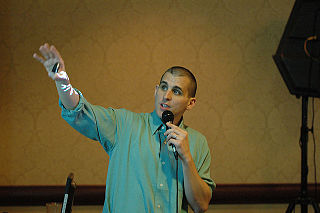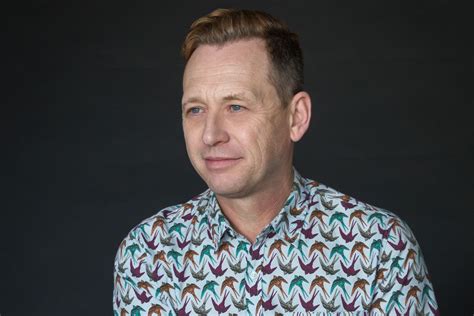A Quote by Molly Antopol
I always tell my students to write the story all the way through, not to play with the language and fall in love with sentences that you then have to cut. I actually find that really difficult to do; there's something so demoralizing about looking at a pile of not very great sentences. As I ease into writing every morning, I tweak a sentence and then tweak a paragraph.
Related Quotes
I turn sentences around. That's my life. I write a sentence and then I turn it around. Then I look at it and I turn it around again. Then I have lunch. Then I come back in and write another sentence. Then I have tea and turn the new sentence around. Then I read the two sentences over and turn them both around. Then I lie down on my sofa and think. Then I get up and throw them out and start from the beginning.
The book works better if I know everything I can about the ending. Not just what happens, but how it happens and what the language is; not just the last sentence, but enough of the sentences surrounding that last sentence to know what the tone of voice is. I imagined it as something almost musical. Then you are writing toward something; you know the sound of your voice at the end of the story. That's how you want to sound in those final sentences: the degree that it is uplifting or not, the degree that it is melancholic or not.
I write different kinds of sentences, depending on what the book is, and what the project is. I see my work evolving. I'm writing long sentences now, something I didn't use to do. I had some kind of breakthrough, five or six years ago, in Invisible, and in Sunset Park after that. I discovered a new way to write sentences. And I find it exhilarating.
I write lyrics really fast. When it's time to write, I usually put them off until the very end and then when it's time to write I can just sit down: I sing the melody, whatever the melody is, because that's the first thing that's already been there for a long time; I start singing it and I start creating consonants and vowels; then they turn into words; then all of the sudden one sentence will happen; then that sentence will dictate how the rest of the sentences happen.
If you directly try to write about an idea, it will never be what you imagined. But if you're imagining through the building of sentences, through the characters, and paying attention to avoid ease and comfort yet still thinking about making the sentences work, you will get a shot at some real interesting stuff.
I had a teacher once who said, "If you are going to write fiction, you should only read poetry." I have always been interested in the writers who care about their sentences and who really work on that level. I have always said that I hate writing, I love revision. So, the language is really important to me. And the comedy and the horror that come out of the language.
When I was writing the first few books, what I would do is write a bunch of sentences and then go back and expand and explode those sentences, pack as much into them as I could, so they'd kind of be like popcorn kernels popping... all this stuff in there to make the writing dense, and beautiful for its density.
Know what makes a sentence more than a random list, practice constructing sentences and explaining what you have done, and you will know how to make sentences forever and you will know too when what you are writing doesn't make the grade because it has degenerated into a mere pile of discrete items.
What I'm really involved in when I'm writing is something that no one ever mentions when they see any play. Writing is like trying to make gunpowder out of chemicals. You have these words and sentences and the strange meanings and associations that are attached to the words and sentences, and you're somehow cooking these things all up so that they suddenly explode and have a powerful effect. That's what absorbs me from day to day in writing a play.
For me writing is an organic process that starts with engaging the language and then thinking about the structure of the novel as you move along. Especially in revision you start to notice correlations. Things come up, not self-consciously, because you're busy feeling your way through sentences and trying to push the language into new places.





































